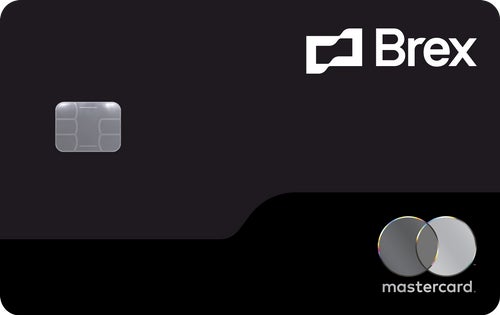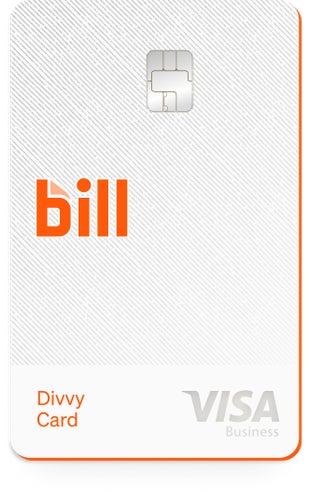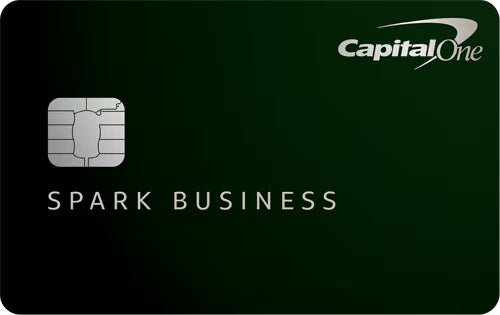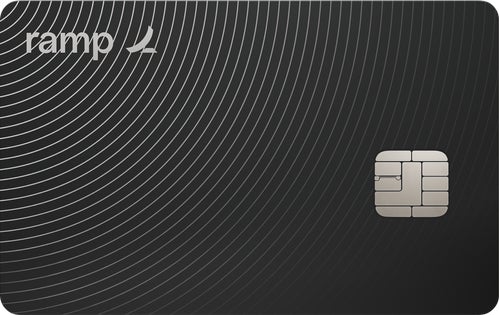| Business Rating: | 4.5 / 5 |
| Rewards Value | 5.0 |
| Annual Percentage Rate | 5.0 |
| Rewards Flexibility | 3.0 |
| Features | 4.0 |
| Issuer Customer Experience | 5.0 |
In a Nutshell:
On top of accessible purchasing power without the risk of a credit check or personal guarantee, this corporate card makes it easier to focus on your business by streamlining the expense management and rewards process.
Rewards Rate
|  |
Sign-up Bonus |  |
Annual Fee $0 (for Free plan; $15 per month per user with Plus plan; custom annual billing with Enterprise plan) |  |
Average Yearly Rewards Value ($4,000 monthly spend) |  |
APR N/A (charge card) |  |
Sutton Bank Customer Service Ratings
|  |
No personal credit checks or guarantees, free employee cards with preset controls for specific vendors and spending categories, real-time spend tracking, automatic missing item and repayment requests, mobile and integrated receipt sending with select services, automatic expense management, savings with participating partner services (including sign-up offers, credits and discounts)
When you think of the best corporate cards, whopping sign-up bonuses, flashy travel perks and extensive spending limits may come to mind. These features are usually locked away behind steep credit profile and revenue requirements, but the Ramp Corporate Visa® Card opens the door for startups and other small businesses that might be normally excluded due to credit checks and the risk of a personal guarantee.
As long as you have the financial promise and cash reserves to qualify, the Ramp card may be an exceptionally low-cost, accessible path to obtain a high-limit charge card that can streamline your expense management process, rewards income and employee spending — all with no annual fee.
Learn more: Guide to the Ramp Corporate card
Pros
- No credit check or personal guarantee requirement makes it one of the most accessible corporate cards on the market.
- It offers an exceptionally high spending limit, which is rare as the Ramp card is one of the only no-annual-fee charge cards available.
- The flat, up to 1.5 percent cash back rate can easily out-earn rival cards for a wide variety of businesses.
- The card offers more than $350,000 in potential rewards with credits and discounts toward partner products and services.
Cons
- Depending on the expense management tools you need, you may need to pay a hefty monthly or annual fee per user for a premium Ramp platform plan.
- Some competing corporate cards provide more valuable travel reward and perk opportunities.
- Unlike some major business cards, there is no option to obtain the card as a sole proprietor.
- There is no option to carry a balance, so you must be able to pay off your card every billing cycle.
Why you might want the Ramp Corporate card
If you don’t have a top-notch credit rating or you don’t want the personal responsibility of taking on potential business expenses yourself, the Ramp Corporate card can provide you a streamlined rewards and expense management experience — as long as you have the revenue to back it up.
Exceptionally accessible purchasing power
One of the Ramp card’s biggest perks is the accessibility of its high credit limit. It’s one of the only business cards you can get with just an EIN (Employer Identification Number) — no credit check or personal guarantee is needed. That means even if your business has bad credit, you can still qualify as long as you have the revenue, business performance history and cash flow to satisfy the issuer. Plus, your personal credit profile and assets are completely separate and won’t be affected if your business goes under and your business assets can’t pay off the rest of your balance.
No personal guarantee is pretty common for a corporate card nowadays, but no credit check is the real leg up here. That makes Ramp’s claim of a spending limit “up to 30 times higher than traditional credit cards” an impressive degree of purchasing power if you have less than perfect credit. In fact, Ramp’s terms state that new cardholders start with a $10,000 temporary limit until they pass the necessary debit checks.
However, the Ramp corporate card is a charge card, so this spending potential can be a double-edged sword since you don’t have the option to pay off your purchase over time. You’ll have to have the funds on hand to pay off your card each billing cycle.
Streamlined expense management and spending controls
One of the biggest selling points that Ramp advertises is the time and money saved on behind-the-scenes work like expense reporting and identifying unnecessary spending. Ramp boasts a single, centralized platform that integrates with popular communication, accounting, banking and security services. Plus, this platform can keep employee travel bookings and other expenses within your selected guardrails, and Ramp can estimate whether you’re getting a good deal on software using their proprietary data.
If your small business has to scrounge up time for expense management, you may be able to free up schedules with Ramp’s automated processes for tasks including:
- Reporting transactions
- Sending receipts
- Reimbursing purchases
- Sending repayment request notifications
- Tracking vendor data
Plus, you get an unlimited number of free employee cards (virtual or physical) that you can individually control down to specific spending categories or merchants. Although employee card management isn’t unique, integrating all of this data into Ramp’s centralized platform with AI analytics can save time, nip non-compliant purchases in the bud and flag wasteful spending off the bat.
Solid, flat-rate rewards for no annual fee
You can earn up to 1.5 percent flat-rate cash back, which is one of the better rates available on a no-annual-fee business card and can be downright rare for a corporate card. It isn’t all that impressive compared to a personal card and non-corporate business card, but it provides a decent foundation of ongoing value when coupled with the accessible purchasing power.
However, some competing corporate cards may be more rewarding if your spending falls within their bonus categories, or if you can justify an annual fee for a higher flat rewards rate.
Note: Although the Ramp Corporate card advertises up to a 1.5 percent flat rewards rate — and clearly stated so until the March 2024 update — the currently vague card terms state that Ramp may provide a lower rewards rate depending on the state of your account and the company’s discretion. For a card that may be available without a credit check, this could mean an unexpectedly low 1 percent flat rewards rate
Potential savings with partner services
Some of the best perks exclusive to business cards are annual credits, complimentary memberships and other discounts for popular business products and services like office supply stores and software. Ramp claims its laundry list of partner offers add up to more than $350,000 in potential savings, and some of these discounts, credits and free trials can certainly save business owners money. For example, the up to $5,000 in Amazon Web Services credits, 50 percent off on UPS shipping and up to $2,500 in OpenAI API credits are nothing to sneeze at.
On the other hand, the offers are for specific products and services instead of general credits, and the fine print for each offer isn’t openly provided to see how much you could personally save. Several of the major offers are on par with the typical sign-up offers anyone can get when they sign up for the service too. Although these perks’ value on paper is undeniable, these features essentially amount to a hit-or-miss coupon book for cardholders.
No annual or foreign transaction fees to worry about
Corporate cards with no annual fee already aren’t very common, and even fewer provide rewards-earning charge cards for each employee. Many corporate cards require around a $100 annual fee for each employee card, so no annual fee for the card alone could save a substantial amount of money. Plus, the sheer flexibility and rewards potential each employee wields can generate considerable rewards value for you.
If your business also requires international trips or purchases, the Ramp Corporate card shields you from foreign transaction fees as well.
Note: Although the corporate card doesn’t pose an annual fee, there are potential fees (potentially per user) if you use the premium tiers of the Ramp platform. The Ramp Plus plan charges $15 per month per user (plus a variable platform fee), although you can get a 20 percent discount if you opt for annual billing. The Ramp Enterprise plan charges custom, annual fees that varies based on your team. However, the only features you’ll gain with these premium plans are more extensive employee card controls, accounting, travel policy and expense management features.
Why you might want a different card
Despite being an accessible corporate card, another option may be better if you’re a one-person business, you prefer the option to carry a balance in a pinch or you want the stand-out welcome offers and travel perks that other popular business cards provide.
Not available for individuals and some small businesses
Although you’ll avoid a credit check and personal guarantee, the Ramp card does have a few requirements that would exclude some smaller businesses. Off the bat, the card isn’t available for individuals, sole proprietorships and unregistered businesses, so single-person businesses and side hustlers will have to look elsewhere. This is relatively standard for corporate cards, but it’s certainly worth noting based on how your business is organized.
Applicants’ operations and spending must also be based mainly in the U.S., although that isn’t out of the ordinary either. More importantly, though, you must also have at least $25,000 cash in a U.S. business bank account to qualify. This is relatively low, but could be a hurdle for some small startups and other modest businesses that don’t have as much cash on hand.
Granted, some corporate cards tailored to small businesses have lower cash requirements, but it makes the Ramp card much more competitive compared to the $75,000 balance it previously required before the card’s March 2024 overhaul. By comparison, the rival Brex Card asks for a minimum $50,000 cash balance (or less for some partner-referred applicants) and the Bill Spend & Expense program only asks for at least a $20,000 balance.
No option to pay off purchases over time
Like other charge cards, the Ramp Corporate Visa can be more flexible than a traditional credit card if a preset spending limit would hamper your business’ needs. However, you also won’t be able to carry over a balance if you ever need more time to pay off your card.
A small business card with a flexible spending limit, like The Blue Business® Plus Credit Card from American Express or the American Express® Business Gold Card, may be a better fit if you’d prefer some leeway in a pinch.
Easily obtainable, but unimpressive welcome offer
Business credit cards are known for their chart-topping sign-up bonuses and this notable upfront value can be a deciding factor when you’re on the fence between two cards. Even no-annual-fee cards for small businesses often provide a welcome offer worth between $200 to $800 — including the few rival no-annual-fee corporate cards.
The Ramp card’s $500 welcome bonus is provided as a virtual card once your application is approved, which makes it remarkably easy to earn considering there is spending requirement necessary. However, the virtual card format poses an extra hurdle compared to competing cards’ rewards offers, and some cards for small businesses and sole proprietors pack an even more valuable offer.
How does the Ramp corporate Card compare to other business cards?
The Ramp card is a well-rounded option compared to other no-annual-fee business cards, and it’s exceptionally accessible for a charge card. However, traditional small business credit cards — and even its closest competitors — may be more rewarding if travel takes up a solid portion of your expenses. On the other hand, the Ramp card and its 1:1 cash back redemption value can easily make it more lucrative for day-to-day business spending.
 |  |  |
|---|---|---|
Rewards rate
Cardholders who aren’t Brex Exclusive members will only earn 1X points that month. | Rewards rate
Rewards rates vary based on how frequently you pay off your card. | Rewards rate
|
Welcome bonus
| Welcome bonus | Welcome bonus |
Annual fee
| Annual fee $0 | Annual fee $150 |
Other things to know
| Other things to know
| Other things to know
|
Ramp Visa® Corporate Card vs. Brex Card
The Brex Card is the most similar alternative to the Ramp card. This no-annual-fee charge card also only requires an EIN, doesn’t need a credit check or personal guarantee and provides unlimited employee cards at no extra cost. Plus, it carries a similar roster of discounts and credits with partner services — including some of the same offers for Amazon Web Services, UPS and QuickBooks.
It also offers a similarly comprehensive set of expense management features, but whether the Ramp or Brex Card’s options are better depend on your individual business needs’. However, the Brex Card could be a much more valuable rewards option for business travelers if you set the Brex Card to be your exclusive corporate card. Outside of the stellar rideshare and travel categories, the 2X points on software and 3X points at restaurants can also give some businesses a leg up over a typical flat rewards rate. However, Brex’s points are only worth 0.6 cents each when redeemed for cash back.
This caveat could easily makes the Ramp card more rewarding for day-to-day business expenses, although it’s worth noting that the Brex Card allows you to potentially increase your rewards’ redemption value through its variety of popular airline transfer partners. The Ramp card might have a purchasing power advantage over the Brex Card’s dynamic spending limit for some users, but the Brex Card may be better for reward maximizers thanks to its reward categories, strong travel redemptions and other redemption options like billboards and employee off-site activities
Ramp Visa® Corporate Card vs. BILL Divvy Corporate Card
The BILL Divvy Corporate Card is remarkably similar to the Ramp card as well — it doesn’t require a personal guarantee or hard credit check, it earns cash back-eligible rewards and it’s an expense management-focused charge card with no annual fee. On the other hand, the BILL Divvy could have a leg up if you’re looking to rake in more rewards.
It can pack a boosted flat rewards rate along with high-rate restaurant, hotel and software bonus categories, and the rewards rates skyrocket if you pay your card off multiple times each billing cycle. These rewards rates could be much more lucrative than just up to 1.5 percent cash back on paper, but the BILL Divvy card’s rewards could be much less valuable. You’ll only get around 0.5 cents per point back toward cash back or any redemption option other than travel (via the “TravelPerk” partner program), which makes the BILL Divvy a much worse flat-rate cash back card. The Ramp card would likely be more lucrative for diverse spenders, but paying off your card weekly (and earning at least 3X points on hotel and restaurant purchases) could rake in enough points to make the BILL Divvy more rewarding in the long run for some businesses.
However, BILL Divvy also mentions that you’ll lose any rewards you earn in each month that you don’t spend at least 30 percent of your credit line, and you’ll lose all of your points if you ever make a late payment or don’t make any purchases for a month. You won’t be able to redeem any points within your first 12 months and without at least 5,000 points banked up either. These red flags can easily be enough to dissuade many applicants, but they may not be deal-breakers if you’ve planned out your payment schedule and expected rewards spending well ahead of time.
Ramp Visa® Corporate Card vs. Capital One Spark Cash Plus
If your business is small enough to consider a traditional business credit card, the Capital One Spark Cash Plus may be more than worth the $150 annual fee for big spenders. It’s one of the few true charge cards left, and its unlimited 2 percent cash back rate can make it one of the most rewarding flat-rate business rewards cards available. Plus, the similarly free employee cards may help you reimburse the annual fee (after spending at least $150,000 each year) and score the best-in-class, first-year cash rewards offers.
If you’re a more modest spender and you want the option to carry a balance, though, The American Express Blue Business Cash™ Card also earns a flat 2 percent cash back rate (but only on the first $50,000 each year; then 1 percent back). The Blue Business Cash packs other key perks typically found on no-annual-fee cash rewards cards as well, including an welcome bonus and intro APR offers, but with the added bonus of a flexible spending limit for qualifying users.
How to use the Ramp Corporate Card:
- Always pay off the card in full each billing cycle.
- Use the card and unlimited, free employee cards to maximize the flat, up to 1.5 percent cash back rate.
- Utilize the partner offer credits, discounts and complimentary trials to save on products and services whenever convenient.
- Optimize the expense management, employee card controls and other features according to your business in order to save money and time on bookkeeping and wasteful spending.
- Use rewards to pay for premium Ramp fees if you enroll.
Is the Ramp Corporate Card right for you?
The Ramp Corporate Visa card can be one of the most accessible corporate charge cards for startups and relatively small businesses with less-than-perfect credit — as long as your business has the cash reserves and revenue to make your case. It’s one of the few options on the market that can make building and running your business easier if you’re looking for automated expense management tools, an extensively flexible spending limit and rewards without the overhead of an annual or employee card fee.
It can be a more robust card than traditional business credit cards if you have a larger business. What’s more, the Ramp card’s unique up to 1.5 percent cash back rate can help it outperform the handful of competing cards for businesses focused on everyday expenses over travel.
All reviews are prepared by CreditCards.com staff. Opinions expressed therein are solely those of the reviewer and have not been reviewed or approved by any advertiser. The information, including card rates and fees, presented in the review is accurate as of the date of the review. Check the data at the top of this page and the bank’s website for the most current information.
Responses to comments in the discussion section below are not provided, reviewed, approved, endorsed or commissioned by our financial partners. It is not our partner’s responsibility to ensure all posts or questions are answered.
All reviews are prepared by CreditCards.com staff. Opinions expressed therein are solely those of the reviewer and have not been reviewed or approved by any advertiser. The information, including card rates and fees, presented in the review is accurate as of the date of the review. Check the data at the top of this page and the bank’s website for the most current information.
Responses to comments in the discussion section below are not provided, reviewed, approved, endorsed or commissioned by our financial partners. It is not our partner’s responsibility to ensure all posts or questions are answered.
